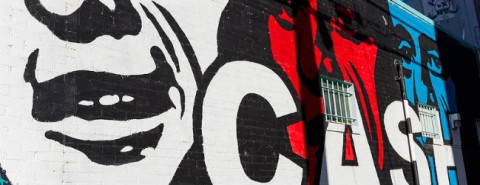Personal soundtrack
Recorded music has suffused my life. It began during a time when my afterschool chore was to milk the cow, and beside the milking stall was a cobwebbed portable radio. One afternoon while I was squeezing the cow’s dry, calloused teats and listening to the radio, I heard a menacing baritone intone the words, “I shot a man in Reno just to watch him die.” Those stark words made an impression. The baritone, of course, was Johnny Cash, and the song was “Folsom Prison Blues.”
The first Cash album I heard whole was At San Quentin, an album my dad bought because he loved “A Boy Named Sue.” Later I would come to appreciate even more Cash’s most outstanding prison-recorded album, At Folsom Prison. What a frisson to hear Cash taunting the prison guards and identifying with the beleaguered prisoners. (The enthusiastic cries of approval heard when Cash sings the line “I shot a man in Reno . . .” did not actually emit from the prisoners—the raucous applause was added later in the studio.) Many Cash albums graced my stereo in the ensuing years, but one merits special mention—Cash’s angry elegy honoring Native Americans, Bitter Tears.
In high school in the early 1970s, I was introduced to more obscure country music. At my girlfriend’s house on lazy Saturday afternoons, my future father-in-law played the recordings of Bob Wills and the Texas Playboys. I had never heard anything like this fiddle-laced country music, which added horns, a heavy jazz inflection, Wills’s whooping and hollering and his odd band-leading interjections (such as “Shoot ’er low, son, she’s riding a Shetland”). Wills’s idiosyncratic music was called western swing. I was entirely converted to its merits, not least by how much fun it is. There is plenty of Wills on record, but perhaps the best overview is the three-disc set Encore.






